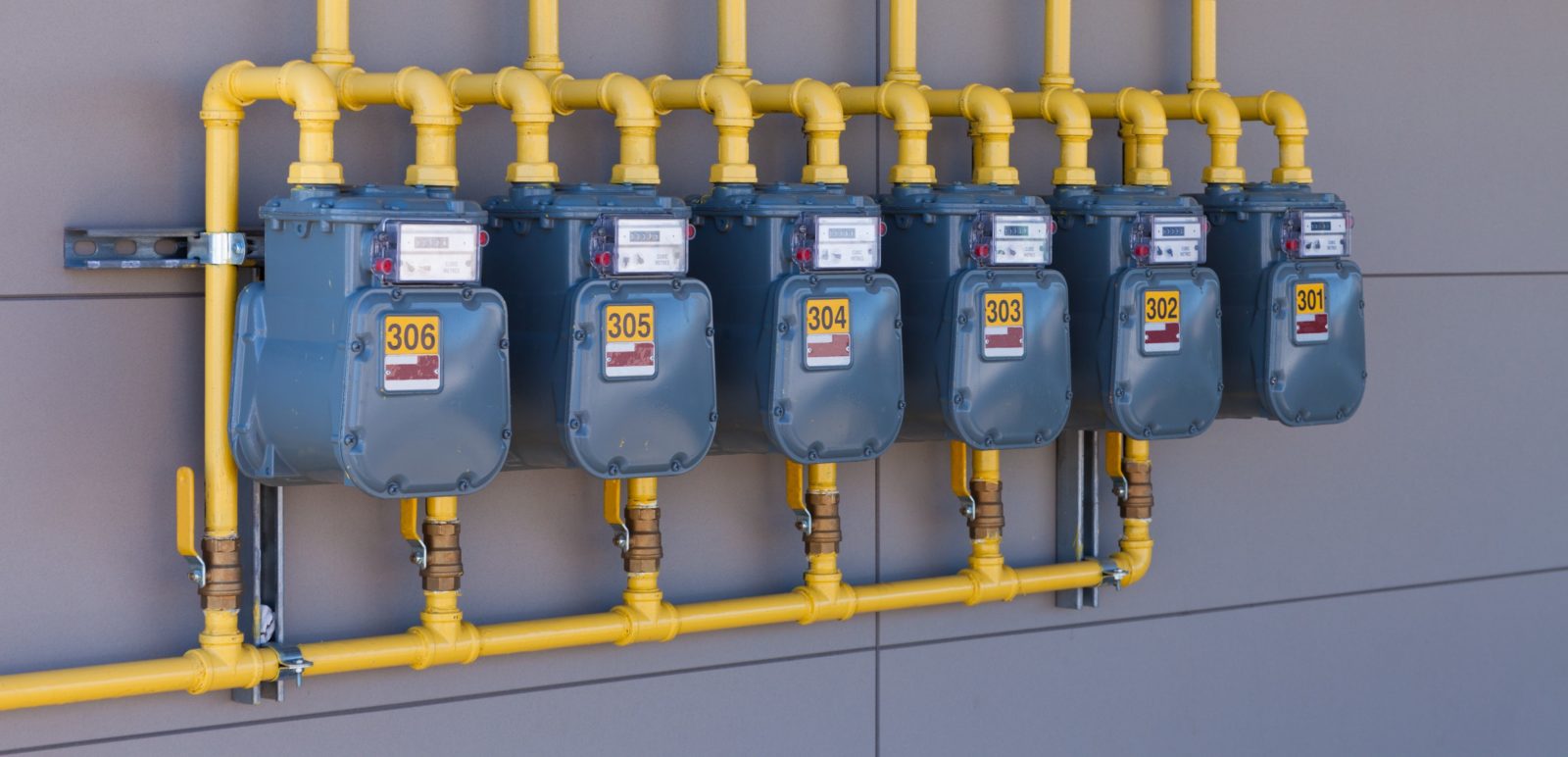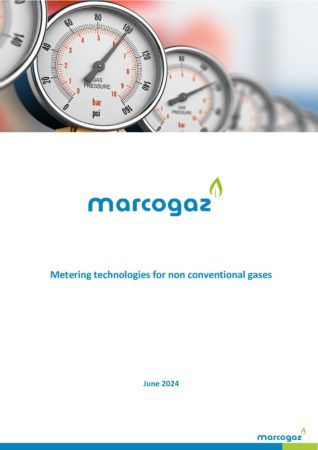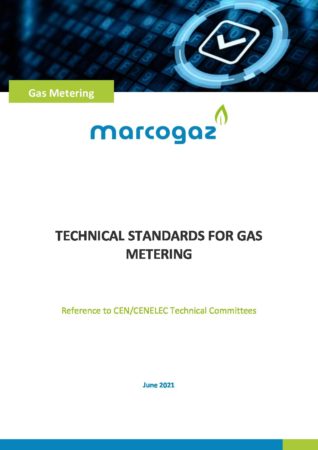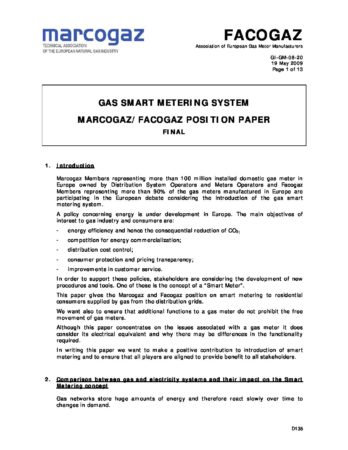Gas Infrastructure > Metering
Gas meters measure the amount of gas sold by the shippers or gas delivered by the system operators to the residential, commercial and industrial customers. Meters are physical equipment placed at the entrance and end point of the network and used to measure the gas that is moving across the network, entering and leaving the installation. They are designed to measure and display the quantity of gas (volume or mass) that flows across the pipelines. Gas meters guarantee that an accurate billing is being charged to the end customers as mentioned in the Measurement Instruments Directive (2014/32/EU).
In terms of measurement, meters quantify a defined gross volume, regardless of the pressurised quantity or quality of the gas volume flowing through the meter. However, customers pay for the energy consumed and not for the volume of gas consumed. Grid operators use conversion devices to convert the units of volume into units of energy, taking into account temperature, pressure and heating value compensation, in order to indicate the actual amount of energy running through a gas meter. Additionally, with the injection of new gases like bio-methane or hydrogen in the network, the conversion process becomes more complex given the calorific value of the gases that changes with the blending process or replacement of natural gas.
In terms of equipment, there are two main categories of gas meters: the industrial meters are connected to high-pressure grids whilst residential meters are connected to low-pressure grids. MARCOGAZ addresses different challenges presented by the different gear and identifies the balance between the accurate technology and the limitation of costs for the end-users.
Measuring gas is crucial in many ways for end-users, industry, and the economy as it contributes to a fairer market with increased competition.
Overall, metering activity supports gas balancing in transmission systems. Operational constrains must be taken into account to avoid malfunction in the metering activities and to ensure that the meter does not block the gas flow in case of failure. To that purpose, regular maintenance of the meters is required.
In addition, in view of improving the efficiency of the consumption through smart gas grids, MARCOGAZ continuously evaluates the performance and impact of smart meters for possible deployment in different locations in Europe.

Chair
Frederic Vulovic




